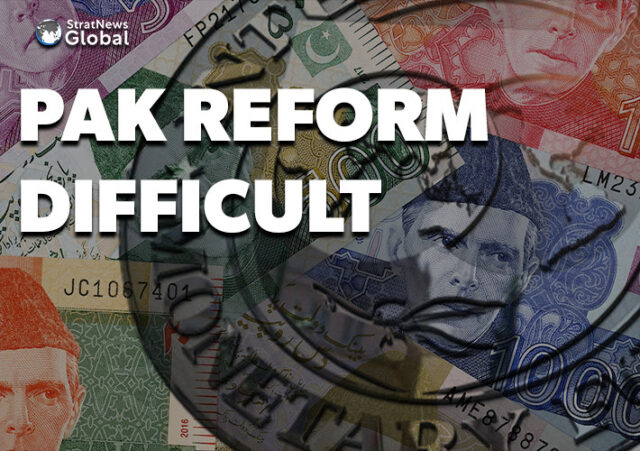Pakistan’s biggest challenge is fiscal consolidation and reform, says a report in the Dawn quoting the Washington-based Institute of International Finance. It said that large fiscal deficits have led to public debt rising from 55% of GDP in 2009-10 to 79% in 2022-23. The Dawn report said the institute showed the fiscal deficit at 8.1% of GDP coinciding with the Pakistan finance ministry stating that the fiscal deficit over the last seven months had gone up from 2.3% to 2.6% of GDP.
The institute noted that given historical precedence and a weak coalition government, risks were tilted to the downside. It warned of a high chance that the tax-revenue target would be missed, while further expenditure and subsidy cuts will be difficult.
“Turbulent, unstable politics will add to the risks facing Pakistan,” Dawn said, quoting the institute. It alluded to the recent fraught elections characterized by suspension of cellular services, delay in releasing the election results and failure to allocate reserved seats to PTI-backed independents, as adding to tensions.
It noted that “Imran Khan is the most popular politician in Pakistan. This puts him at odds with the powerful military.”
It warned of rising tensions between the two sides, indicating that this could lead to another round of military-led crackdowns on Imran Khan’s party and supporters. Add to that the travails of a weak coalition government.
“The PPP seems reluctant to sign on to politically costly reforms. Without their support it’s hard to see a way forward for the PML-N, which could hinder or prolong negotiations with the IMF.”
Historical precedence, it said, did not bode well either for the current coalition government or a new IMF programme. “To date no prime minister (of Pakistan) has ever finished their five-year term, while Pakistan is currently in its 23rd IMF programme since 1958.
Thirty eight years in journalism, widely travelled, history buff with a preference for Old Monk Rum. Current interest/focus spans China, Technology and Trade. Recent reads: Steven Colls Directorate S and Alexander Frater's Chasing the Monsoon. Netflix/Prime video junkie. Loves animal videos on Facebook. Reluctant tweeter.





